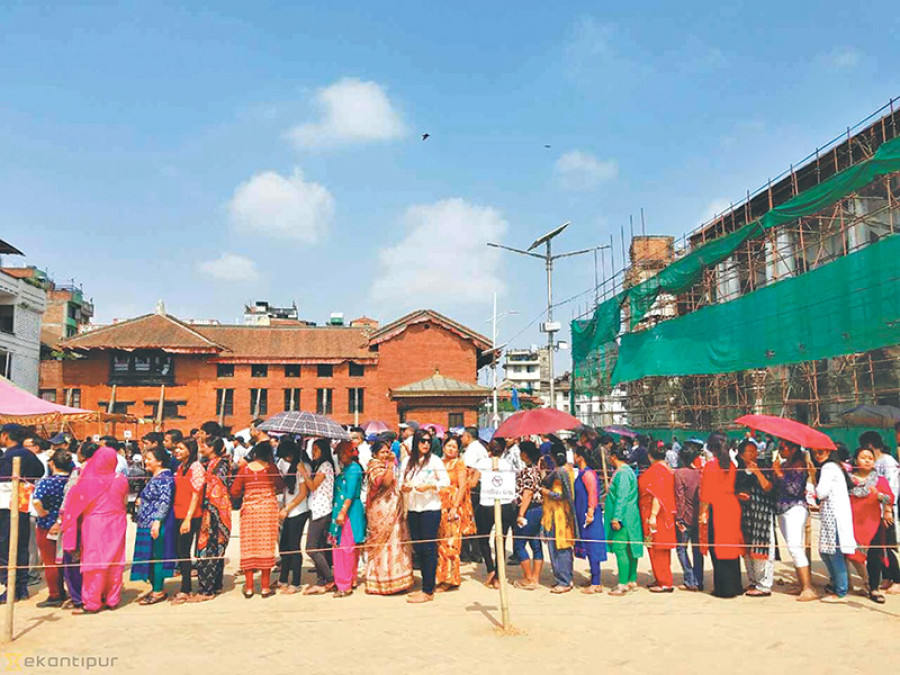Miscellaneous
Choose wisely
In Nepal, politics is the most talked about subject, be it on the news or local tea shops. There are nearly 80 political parties that are now officially registered in the country.
Saroj Wagle
In Nepal, politics is the most talked about subject, be it on the news or local tea shops. There are nearly 80 political parties that are now officially registered in the country. All of them have their own lofty promises and their candidates peddle tall dreams to the people when the voting season comes around. But no sooner the election is over, the voters are forgotten. Once again, with the provincial and federal elections just around the corner, election fever is upon us again and we, the voters, are gearing up to be duped again.
Elections are the bedrock of a democratic society. In an ideal democracy, every four or five years the people have the choice of electing their representatives once again. If someone who was previously elected into office has not lived up to the voters expectations, they get voted out. If someone has done well for their constituents, they continue to enjoy the voter’s confidence. That way, the people become the ultimate checks and balance of power.
But Nepal is not the perfect society, and our imperfections, as a country and as a society, becomes plainly obvious every time the elections come around. Election after election, we vote in the exact same people who have swindled us in the past. Election after election, the parties field the same corrupt candidates and we oblige happily. Election after election, we disregard the choices that we could possibly make and vote for the same old crooks and then have the gall to say “Ke, garne!”
This is how Nepali politics has been from the very beginning. Rather than serving the aspirations of the common citizens, rather than working for development and the eradication of poverty, rather than working towards a more just and fair society, our politicians work only for themselves and the parties. Our parties clearly lack the political will and do not have a clear vision for where they want to steer the country (even though they publish lofty manifestos). How long will we, the people, let this charade carry on?
BP Koirala once said, “Economics is the management of goods, politics is the management of people.” By and large, Nepalis are honest, hard working folk. If deployed well we could do wonders. Just look at how Nepalis have contributed to the construction boom in the Gulf. Nepalis have literally helped raised new cities from the dirt. But in our own country, we can never seem to do the same. Why? Isn’t this all up to bad management? And if politics if the management of the people, then our managers (our politicians) have failed miserable. When are we going to fire them?
Surely, the answer must be: now. As we gear up for another cycle of elections, let us not continue to repeat our mistakes all over again. We have the choice. We have new and maverick candidates vying for electoral seats. Let us not blindly overlook them all over again. How we vote in these elections will determine the course the country will take over the next decade. Let’s make our choices wisely.
- Wagle is a BBA graduate from Pokhara University




 16.12°C Kathmandu
16.12°C Kathmandu










